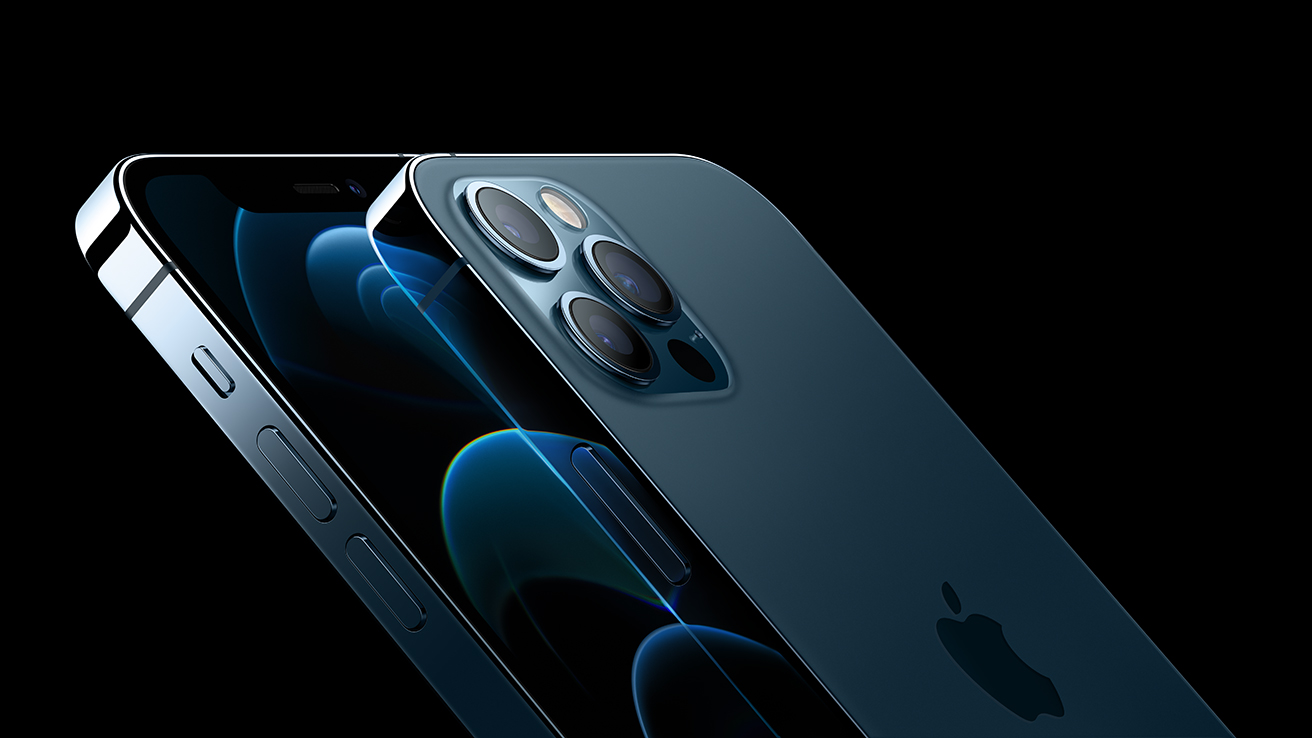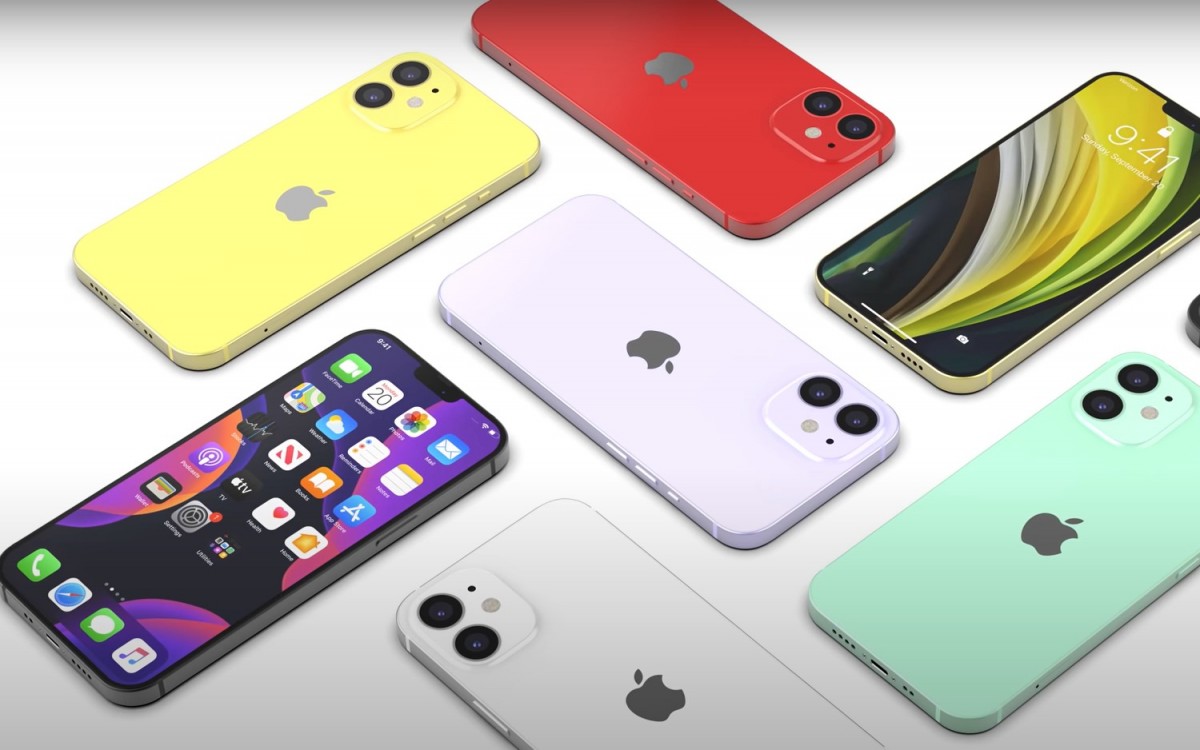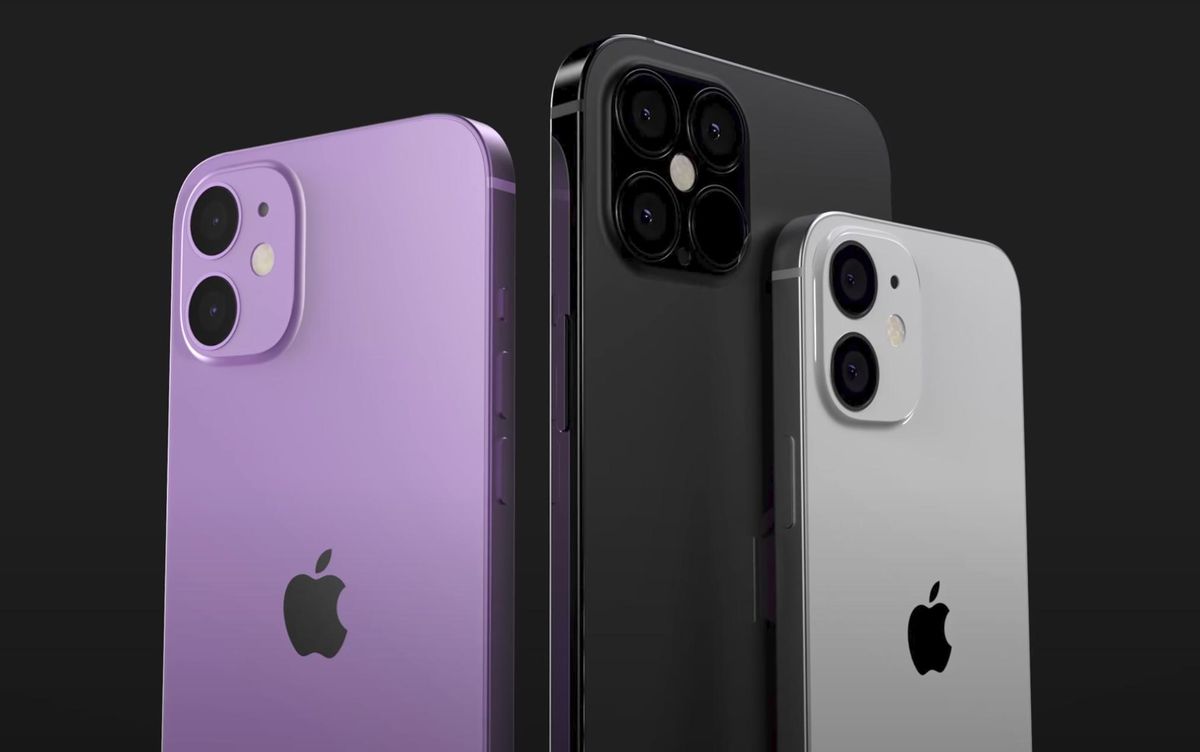Technology
Apple Rolls Out Four-Model iPhone 12

By Adedapo Adesanya
Apple announced its four-model iPhone 12 line up on Tuesday, October 13, bringing back the iPhone’s design since 2017’s iPhone X, which introduced face unlocking and better screen technology.
The newly designed iPhone 12 models feature expansive edge-to-edge Super Retina XDR displays for a brighter, more immersive viewing experience, and a new Ceramic Shield front cover, providing the biggest jump in durability ever on iPhone.
In addition to more models, the phone came with 5G wireless support. 5G on iPhone boasts improved speeds for faster downloads and uploads, higher quality video streaming, more responsive gaming, real-time interactivity in apps, FaceTime in high definition, and more.
They also came with the Apple-designed A14 Bionic, the fastest chip in a smartphone coupled with an advanced dual-camera system. This has the ability to deliver meaningful new computational photography features and the highest quality video in a smartphone.
The new iPhone 12 models also introduce MagSafe, offering high-powered wireless charging and an all-new ecosystem of accessories that easily attach to the iPhone. These chargers do not use cord but instead, use magnetic pins to connect the charging cable with the device.
The new models also feature Smart Data mode, which extends battery life by intelligently assessing 5G needs and balancing data usage, speed, and power in real-time.
iPhone 12 and iPhone 12 mini
iPhone 12 and iPhone 12 mini will be available in five beautiful aluminium surfaces, including blue, green, black, white, and red. The iPhone 12 comes in 6.1-inch while the iPhone 12 mini comes in a 5.4-inch. This makes the iPhone 12 mini is the smallest, thinnest, and lightest 5G smartphone in the world.
iPhone 12 and iPhone 12 mini have water resistance up to 6 meters for up to 30 minutes and are protected against everyday spills, including coffee and soda.
iPhone 12 features the first camera to shoot HDR video with Dolby Vision and is the first and only device in the world to enable an end-to-end Dolby Vision experience which allows customers to easily capture, edit, and share cinema-grade videos.
Both models also now feature improved cinematic video stabilization, even more, true-to-life selfie videos with Dolby Vision, and Night mode Time-Lapse, offering longer exposure times for sharper videos, better light trails, and smoother exposure in low-light scenarios when used with a tripod.
In terms of cost, the phones have a starting price of $799 (N302,800) and $699 (N264,900) respectively
Pre-orders for iPhone 12 begin Friday, October 16, with availability beginning Friday, October 23. iPhone 12 mini will be available for pre-order beginning Friday, November 6, and in stores beginning Friday, November 13.
iPhone 12 will be available in India, South Korea, and more than a dozen other countries and regions beginning Friday, October 30.
iPhone 12 Pro and iPhone 12 Pro Max
iPhone 12 Pro and iPhone 12 Pro Max will be available in four stainless steel finishes, including graphite, silver, gold, and pacific blue.
With impressively larger, edge-to-edge displays with reduced borders in familiar sizes, the 6.1-inch iPhone 12 Pro and 6.7-inch iPhone 12 Pro Max features a Super Retina XDR display with systemwide colour management for industry-leading colour accuracy.
The iPhone 12 Pro Max offers the largest display ever on an iPhone and the highest resolution featuring nearly 3.5 million pixels for a remarkable, true-to-life viewing experience. These OLED displays bring HDR video content to life, reaching 1200 nits peak brightness.
Just like the iPhone 12 and its mini equivalent, the two models come with the ability to withstand water submersion up to 6 meters for up to 30 minutes.
The iPhone 12 Pro features the new seven-element lens Wide camera with an ƒ/1.6 aperture, the fastest ever on an iPhone while the iPhone 12 Pro Max takes the pro camera experience even further. The new ƒ/1.6 aperture Wide camera boasts a 47 per cent larger sensor with better improvement and experience in low-light conditions.
The 12 Pro models offer the highest quality video in a smartphone and are the first cameras and only devices in the world to enable an end-to-end experience for HDR video with Dolby Vision, up to 60 frames per second (fps), and even better video stabilization for cinema-grade productions.
In addition to these, the HomePod Mini smart speaker was launched and a stealth release of the $50 Beats Flex wireless headphones.
Technology
Leticia Otomewo Becomes Secure Electronic Technology’s Acting Secretary

By Aduragbemi Omiyale
One of the players in the Nigerian gaming industry, Secure Electronic Technology (SET) Plc, has appointed Ms Leticia Otomewo as its acting secretary.
This followed the expiration of the company’s service contract with the former occupier of the seat, Ms Irene Attoe, on January 31, 2026.
A statement to the Nigerian Exchange (NGX) Limited on Thursday said Ms Otomewo would remain the organisation’s scribe in an acting capacity, pending the ratification and appointment of a substantive company secretary at the next board meeting.
She was described in the notice signed by the Managing Director of the firm, Mr Oyeyemi Olusoji, as “a results-driven executive with 22 years of experience in driving business growth, leading high-performing teams, and delivering innovative solutions.”
The acting secretary is also said to be “a collaborative leader with a passion for mentoring and developing talent.”
“The company assures the investing public that all Company Secretariat responsibilities and regulatory obligations will continue to be discharged in full compliance with the Companies and Allied Matters Act, applicable regulations, and the Nigerian Exchange Limited Listing Rules,” the disclosure assured.
Meanwhile, the board thanked Ms Attoe “for professionalism and contributions to the Company during the period of her engagement and wishes her well in her future endeavours.”
Technology
Russia Blocks WhatsApp Messaging Service

By Adedapo Adesanya
The Russian government on Thursday confirmed it has blocked the WhatsApp messaging service, as it moves to further control information flow in the country.
It urged Russians to use a new state-backed platform called Max instead of the Meta-owned service.
WhatsApp issued a statement earlier saying Russia had attempted to “fully block” its messaging service in the country to force people toward Max, which it described as a “surveillance app.”
“Today the Russian government attempted to fully block WhatsApp in an effort to drive people to a state-owned surveillance app,” WhatsApp posted on social media platform X.
“Trying to isolate over 100 million users from private and secure communication is a backwards step and can only lead to less safety for people in Russia,” it said, adding: “We continue to do everything we can to keep users connected.”
Russia’s latest move against social media platforms and messaging services like WhatsApp, Signal and Telegram comes amid a wider attempt to drive users toward domestic and more easily controlled and monitored services, such as Max.
Russia’s telecoms watchdog, Roskomnadzor, has accused messaging apps Telegram and WhatsApp of failing to comply with Russian legislation requiring companies to store Russian users’ data inside the country, and of failing to introduce measures to stop their platforms from being used for allegedly criminal or terrorist purposes.
It has used this as a basis for slowing down or blocking their operations, with restrictions coming into force since last year.
For Telegram, it may be next, but so far the Russian government has been admittedly slowing down its operations “due to the fact that the company isn’t complying with the requirements of Russian legislation.”
The chat service, founded by Russian developers but headquartered in Dubai, has been a principal target for Roskomnadzor’s scrutiny and increasing restrictions, with users reporting sluggish performance on the app since January.
Technology
Nigerian AI Startup Decide Ranks Fourth Globally for Spreadsheet Accuracy

By Adedapo Adesanya
Nigerian startup, Decide, has emerged as the fourth most accurate Artificial Intelligence (AI) agent for spreadsheet tasks globally, according to results from SpreadsheetBench, a widely referenced benchmark for evaluating AI performance on real-world spreadsheet problems.
According to the founder, Mr Abiodun Adetona, the ranking places Decide alongside well-funded global AI startups, including Microsoft, OpenAI, and Anthropic.
Mr Adetona, an ex-Flutterwave developer, also revealed that Decide now has over 3,000 users, including some who are paying customers, a signal to the ability of the startup to scale in the near future.
SpreadsheetBench is a comprehensive evaluation framework designed to push Large Language Models (LLMs) to their limits in understanding and manipulating spreadsheet data. While many benchmarks focus on simple table QA, SpreadsheetBench treats a spreadsheet as a complex ecosystem involving spatial layouts, formulas, and multi-step reasoning. So far, only three agents rank higher than Decide, namely Nobie Agent, Shortcut.ai, and Qingqiu Agent.
Mr Adetona said SpreadsheetBench measures how well AI agents can handle practical spreadsheet tasks such as writing formulas, cleaning messy data, working across multiple sheets, and reasoning through complex Excel workflows. Decide recorded an 82.5% accuracy score, solving 330 out of 400 verified tasks.
“The result reflects sustained investment in applied research, product iteration, and learning from real-world spreadsheet workloads across a wide range of use cases,” Mr Adetona told Business Post.
For Mr Adetona, who built Decide out of frustration with how much time professionals spend manually cleaning data, debugging formulas, and moving between sheets, “This milestone highlights how focused engineering and domain-specific AI development can deliver frontier-level performance outside of large research organisations. By concentrating on practical business data problems and building systems grounded in real user environments, we believe smaller teams can contribute meaningfully to advancing applied AI.”
“For Decide, this is a foundation for continued progress in intelligent spreadsheet and analytics automation,” he added.
-

 Feature/OPED6 years ago
Feature/OPED6 years agoDavos was Different this year
-
Travel/Tourism10 years ago
Lagos Seals Western Lodge Hotel In Ikorodu
-

 Showbiz3 years ago
Showbiz3 years agoEstranged Lover Releases Videos of Empress Njamah Bathing
-

 Banking8 years ago
Banking8 years agoSort Codes of GTBank Branches in Nigeria
-

 Economy3 years ago
Economy3 years agoSubsidy Removal: CNG at N130 Per Litre Cheaper Than Petrol—IPMAN
-

 Banking3 years ago
Banking3 years agoSort Codes of UBA Branches in Nigeria
-

 Banking3 years ago
Banking3 years agoFirst Bank Announces Planned Downtime
-

 Sports3 years ago
Sports3 years agoHighest Paid Nigerian Footballer – How Much Do Nigerian Footballers Earn
















